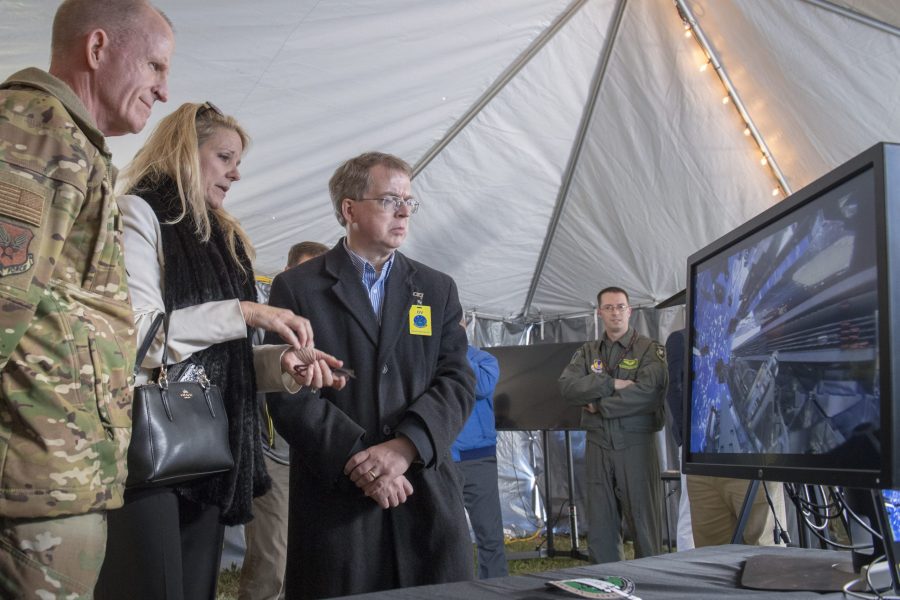The Government Accountability Office pushed back on recent comments from Chief of Staff Gen. David Goldfein, saying its report on the Air Force’s Advanced Battle Management System was not out of date and the agency did, in fact, have access to classified aspects of the program.
Goldfein told defense reporters on April 22 the GAO’s audit suffered from “some latency,” the agency did not attend the December ABMS experiment, and the audit didn’t reflect some important classified aspects of the program. He also said the Air Force is now moving so fast on acquisition projects that GAO needs new procedures to better keep up, offering to personally “walk” the GAO through the program in the interest of transparency.
“A lot of it is in the classified realm, a lot of it, quite frankly, in the space realm,” Goldfein explained. “And if GAO doesn’t have access or clearance to get at it and look at it, then the report is going to be on a very small portion of what Advanced Battle Management System really is. So now we need to use this as an opportunity to educate.”
But GAO’s director of contracting and national security acquisitions, who headed up the ABMS review, told Air Force Magazine that Goldfein “may be misinformed” on the agency’s participation and the scope of the ABMS review.
Mak said that while GAO did not attend the December ABMS demonstration, “we did request and received information related” to it, “as well as incorporating the appropriate unclassified reference to the demo in our draft report.” Also, the demo was “only one small part of the ABMS in its entirety.”
The GAO “knew about [the demo] and asked plenty of questions afterwards and received the information requested.”
Mak also disputed Goldfein’s suggestion of latency, saying the review included information through March and was released in April.
“I believe GAO has a full understanding of the past and ongoing ABMS efforts,” Mak said, noting that there was frequent coordination with the Air Force “on the classified side” even prior to the December experiment, including frequent discussions with ABMS architect Preston Dunlap. She said the review staff “participated in numerous classified discussions,” but none of these changed the conclusion of the report, which was that “the Air Force does not have an overall plan for ABMS, a point which they openly acknowledged,” and with which USAF concurred in its response to the GAO review. Mak said she and the review staff have the appropriate clearances and have reviewed many secret programs that “may or may not be related to ABMS.”
The Air Force “still needs to develop an overall plan,” Mak wrote, “to include preliminary costs and schedule. Without some type of overall plan in place, it will be difficult to prioritize this program among the acquisition efforts within the Air Force.”
As to Goldfein’s suggestion that GAO needs to “up their game” to stay on top of fast-moving programs that USAF is now accelerating using “other transactional authorities” granted by Congress, Mak said GAO throughout the review “made it very clear that we did not have issues with the approach the Air Force is taking using this iterative process.”
She said engaging industries and using other transactional authorities is “a good thing, … if it’s applicable,” and GAO has covered these kinds of issues. It will soon release a “GAO Agile Assessment Guide,” laying out “leading practices for agile development,” she noted.
In the case of ABMS, Mak wrote, “We focused on the need to develop an overall plan that lays out an initial baseline,” which can then be updated. Defining requirements, she said, is an “essential element” for any acquisition. “How does one build a house without a blueprint?” she added.


